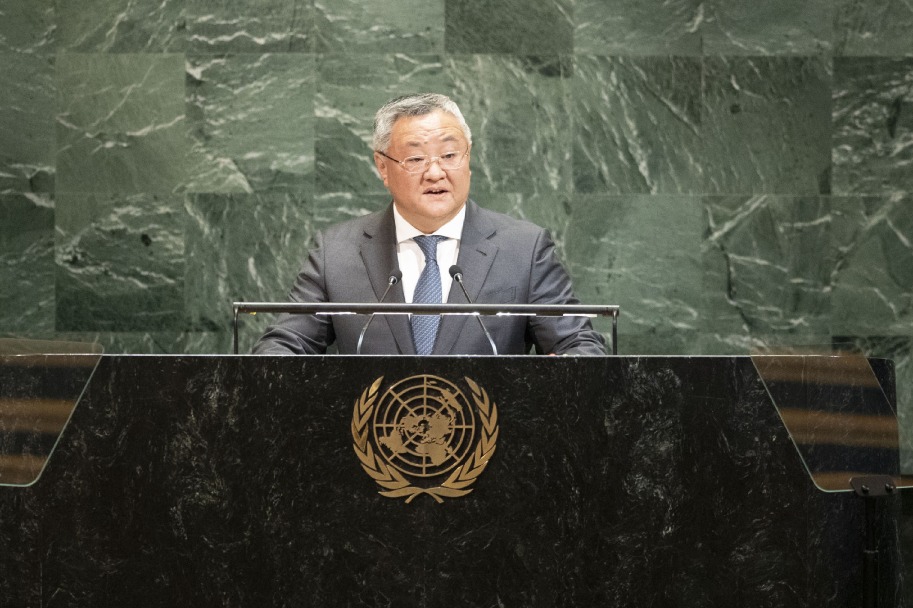Summit seen as constructive engagement

A US official has described last month's summit between Chinese President Xi Jinping and his US counterpart Joe Biden as "a very constructive engagement".
Michael Pyle, the US deputy national security adviser for international economics, said on Tuesday that their meeting in Bali, Indonesia, "put a floor under the US-China bilateral relationship".
He was speaking at an event titled "Assessing the 2022 G20 summit: The sherpa perspective on Bali outcomes", hosted by the Center for Strategic& International Studies, or CSIS, and the Official Monetary and Financial Institutions Forum.
"There were objectives around finding a path forward constructively that were also achieved," Pyle said of the presidents' meeting, which took place during the G20 Summit.
Pyle worked as a sherpa for the US for the 17th G20. In Bali, leaders from the largest economies convened to discuss pressing global community issues. They signed a joint declaration, including new commitments on global health architecture, digital economy transformation and energy transition.
Pyle said that putting the groundwork in place for future US-China relations was one of the key goals at the summit.
Renewed effort
"One, opening up a renewed effort on some shared challenges, in particular reopening engagements on the climate issues that obviously confront all of us globally and for which the US and China are key players, but also at the level of opening up further engagement, including in-person engagements," he said.
Pyle said that the US announced that Secretary of State Antony Blinken would visit China in the new year. He expects that communications between the US and China will be "more robust" in 2023.
Some in-person talks between US and Chinese senior officials in finance, trade, climate change and defense have occurred since the two leaders' meeting in Bali.
At the Washington event on Tuesday, Matthew Goodman, the senior vice-president of the CSIS economics program, said the presidents' meeting was a "useful bilateral summit", adding that the G20 is "an essential forum".
"If it didn't exist, we'd need to create it because it does help to set a global agenda for these difficult challenges. At its best, it addresses crises and real problems in the global commons, and it builds habits of cooperation among leaders who don't have many opportunities to meet at G20," he said.
YIFAN XU in Washington































